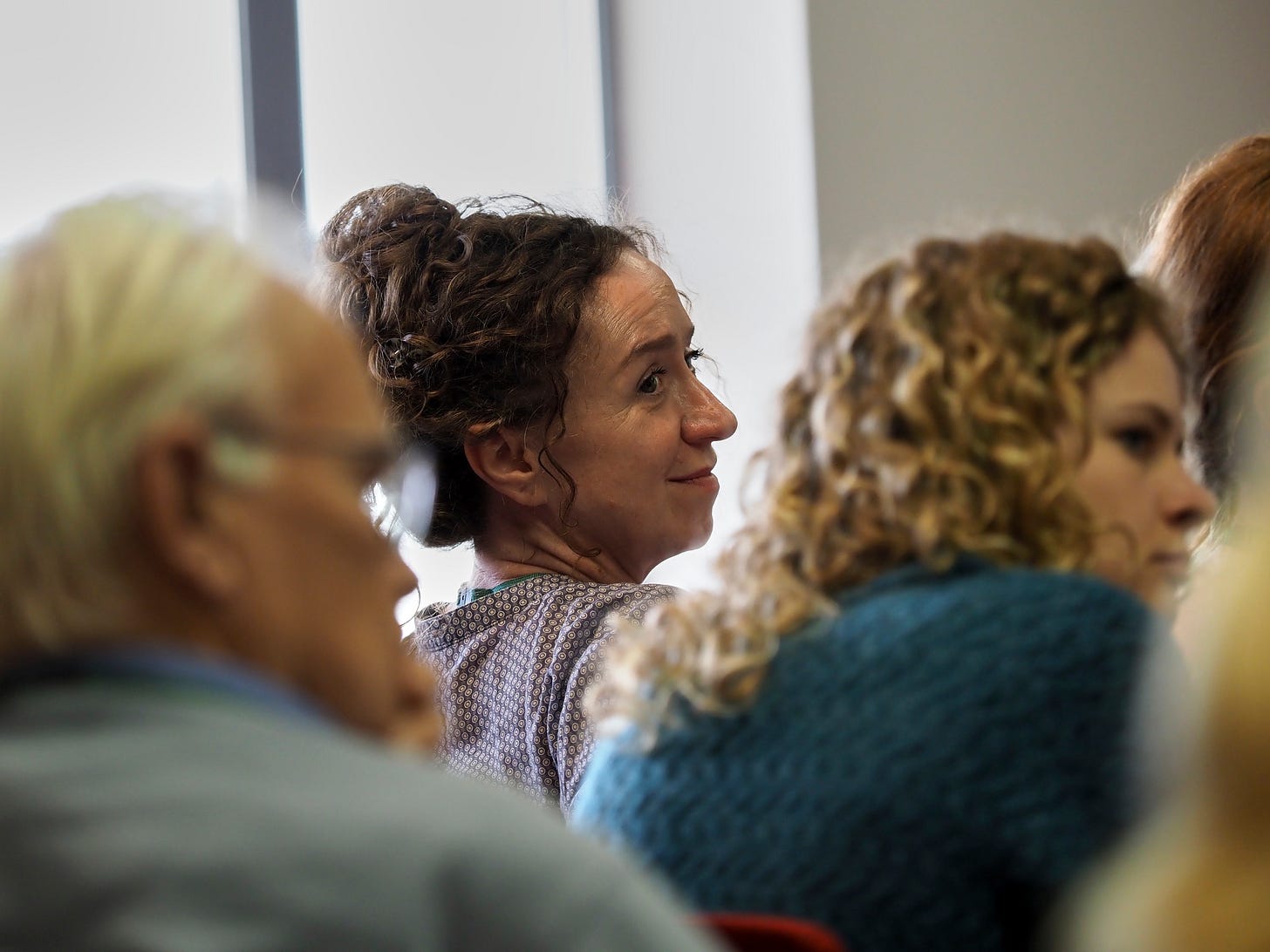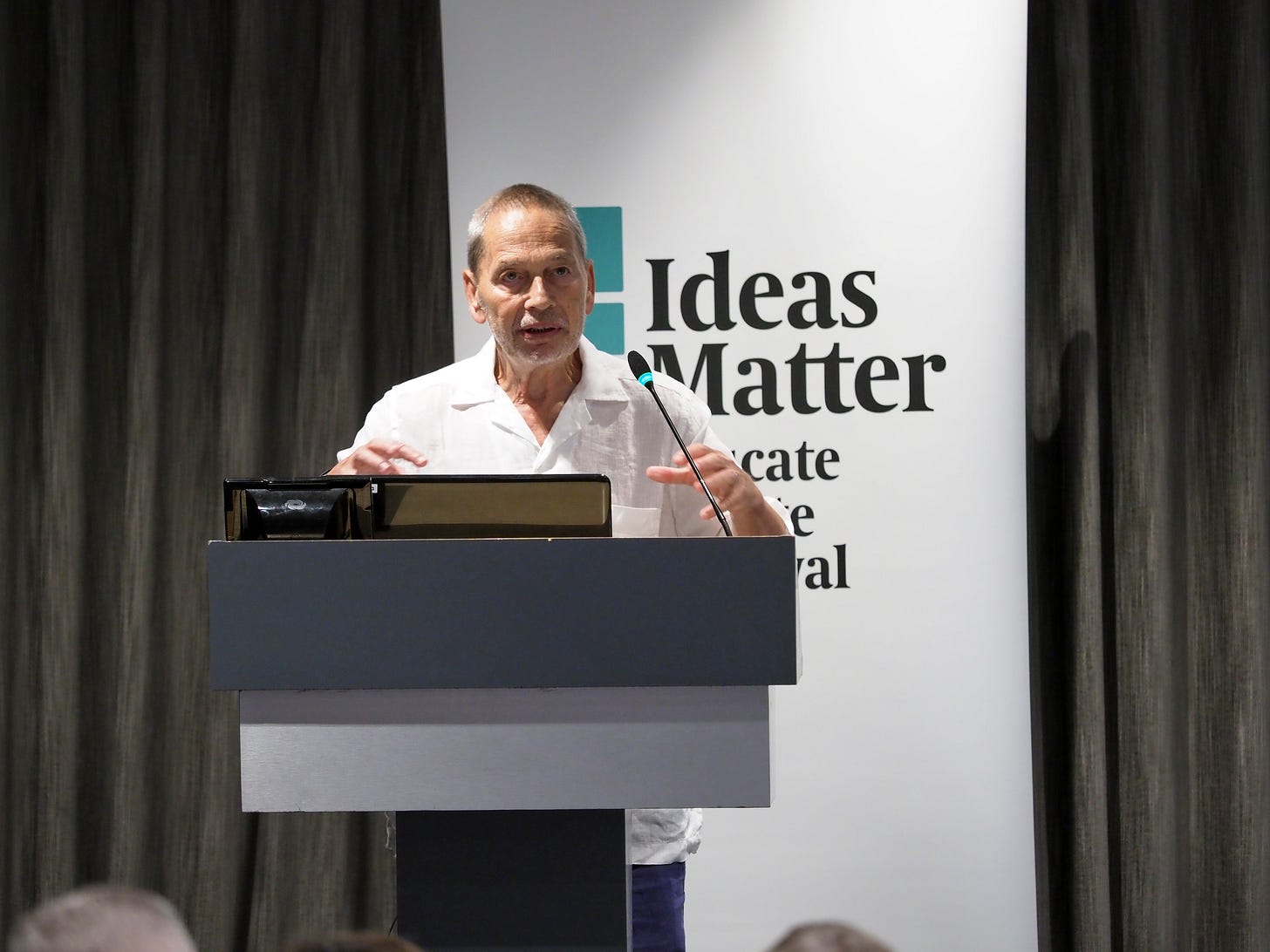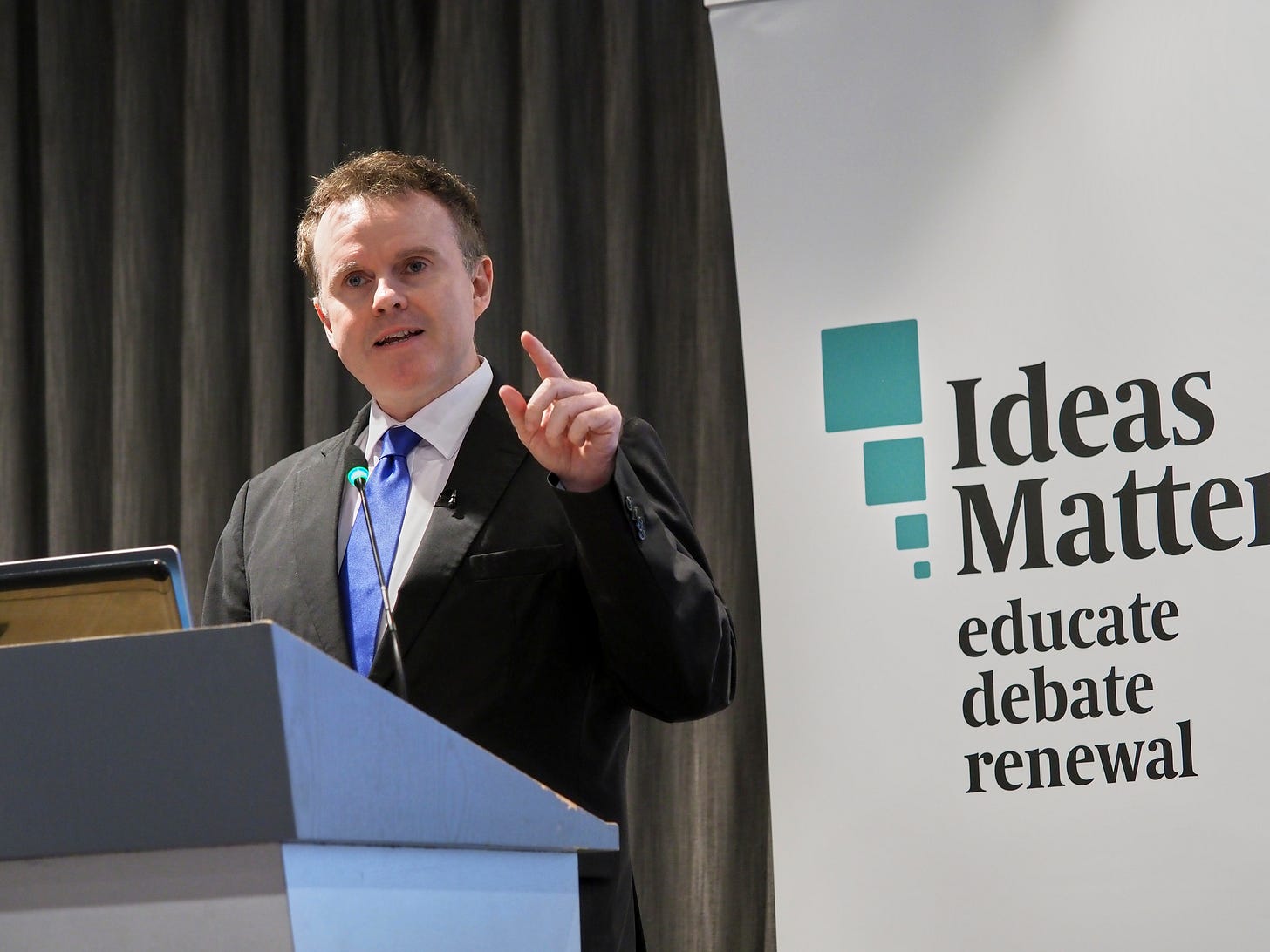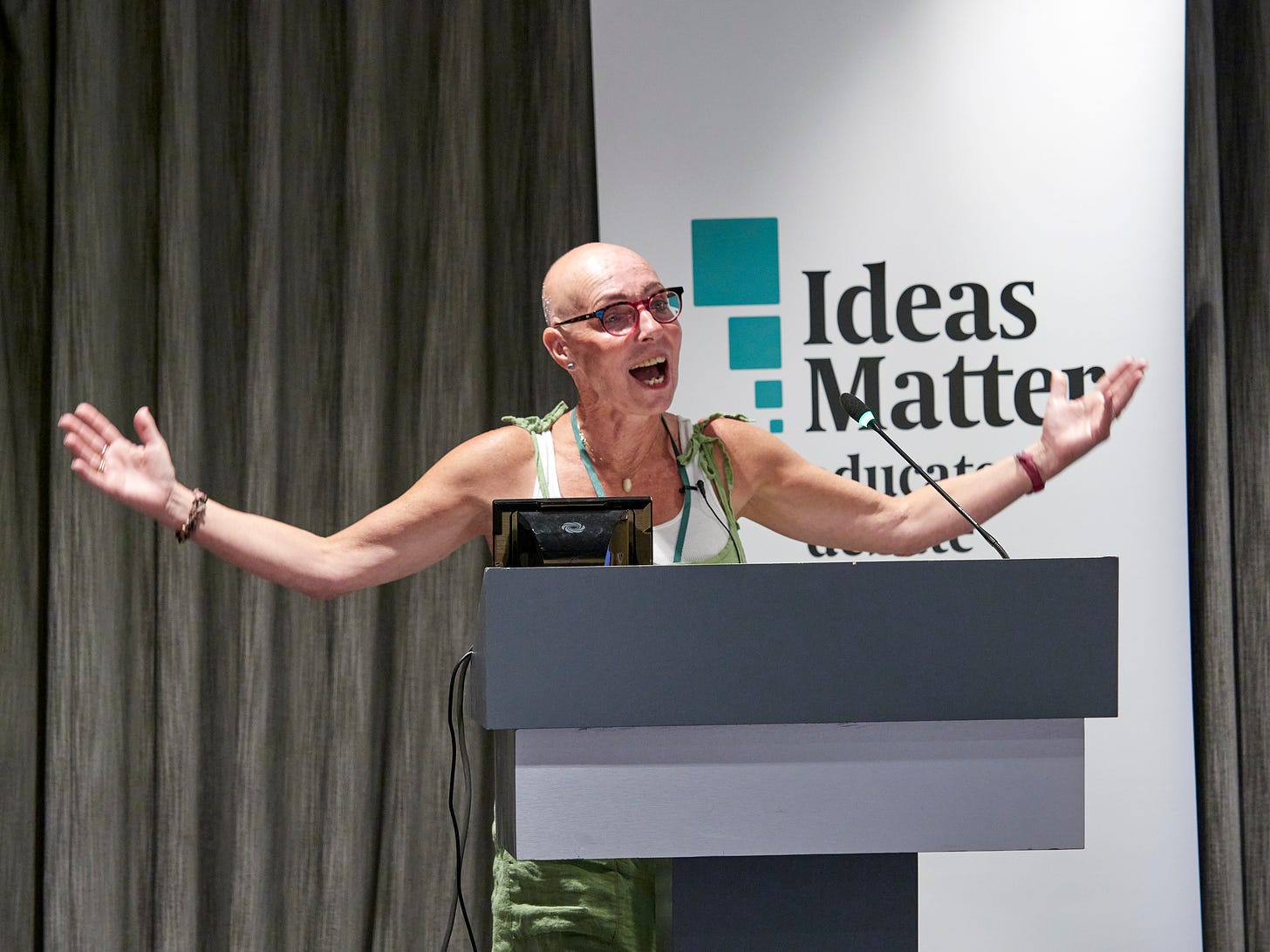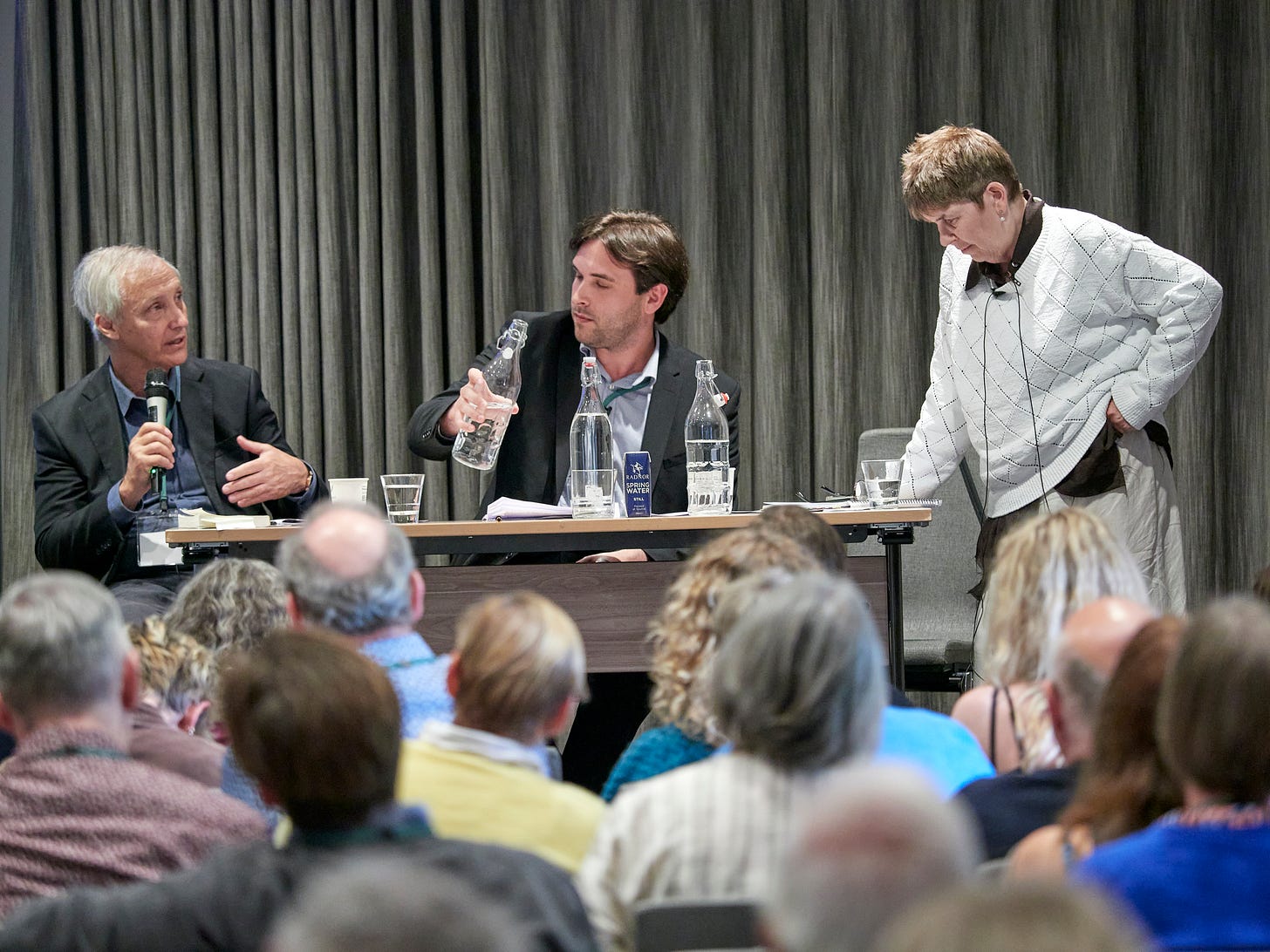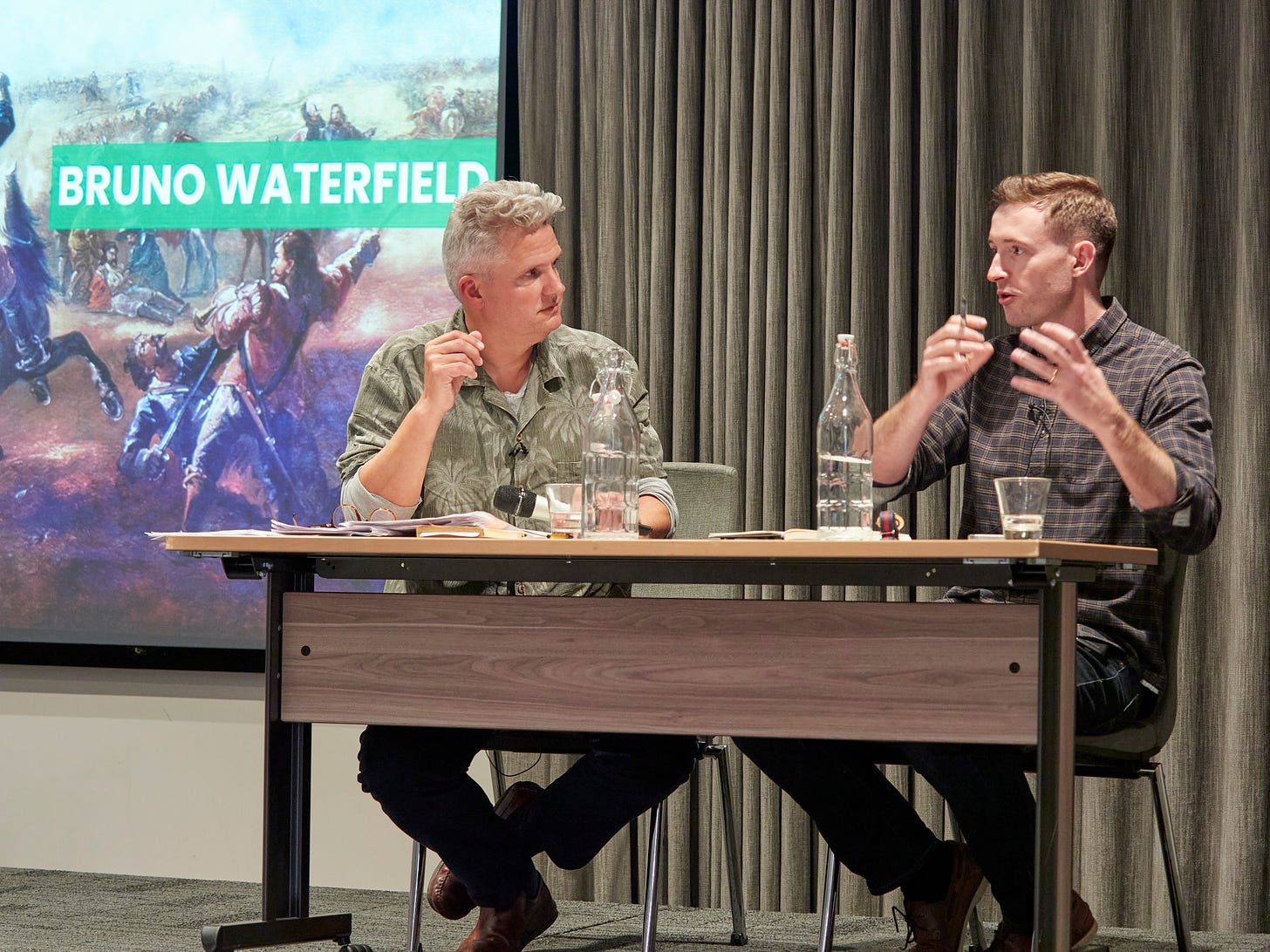What is Western Civilisation and how should we defend it?
Jacob Reynolds shares his introductory remarks from The Academy.
The Academy, organised by the charity Ideas Matter, is a summer residential weekend at Wyboston Lakes Conference Centre, Bedfordshire – something of an intellectual holiday, a chance to step back from contemporary politics and delve into ideas. This year’s gathering looked at the issue of civilisation - and whether it’s under siege. In this guest post, convenor Jacob Reynolds shares this opening remarks with the Academy of Ideas Substack followers.
Welcome to The Academy 2024: Civilisation Under Siege?
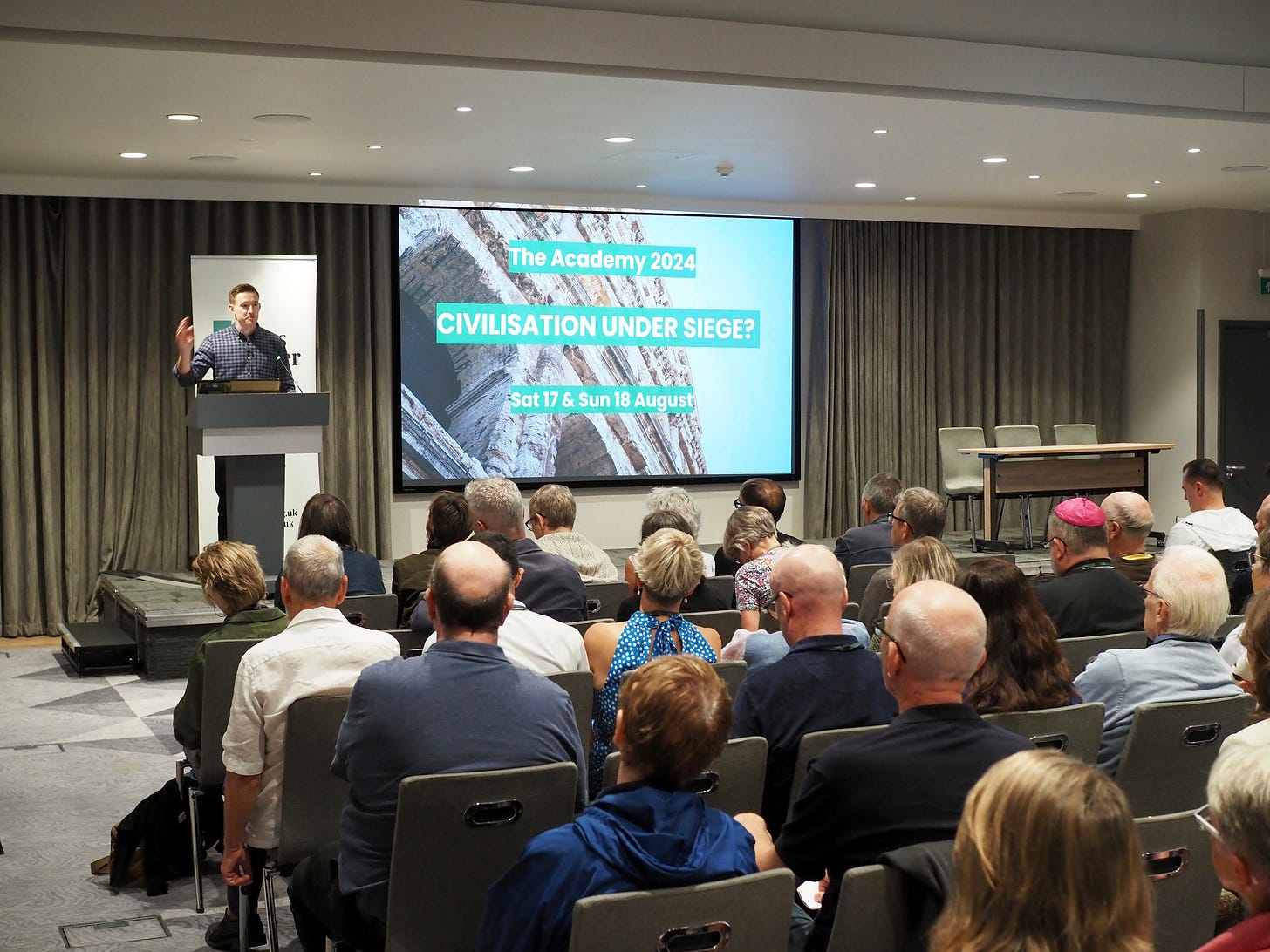
I am Jacob Reynolds, convenor of The Academy for the charity Ideas Matter. The aim of this event is to interrogate the emergence of what we call a new ‘civilisational discourse’ that has begun to grip the minds of almost everyone.
And when I say everyone, I do mean everyone. Talking in civilisational terms is probably the only thing that unites Elon Musk, Ursula Von Der Leyen, and Ayatollah Khamenei – not to mention the very online Right, regime propagandists, new conservatives, American neocons, trans-exclusionary radical feminists, and queers for Palestine.
What do we all mean when we talk about civilisation? Of course, we all mean different things. But what unites it all is a sense that the current and coming battles have acquired an existential significance. No longer do we witness simply conflict over resources or ideologies – instead, it would seem that the very question of who we are is at stake. The term is used somewhat promiscuously, too. It is often not clear whether people are arguing that civilisation as such is in peril, or simply Western civilisation. This raises immediately the questions of what civilisation is, and what is distinct about the civilisation of the West.
I
Here, we might turn to Jacob Burckhardt, the Swiss cultural pioneer of the nineteenth century whose studies on Renaissance civilisation and Greek civilisation could easily have been added to this year’s reading list. In both these studies, Burckhardt sought to uncover what the, almost buried, motor of history was to these civilisations. He wanted to know not just what explained their behaviour in the sense of their goals, but what rendered their actions comprehensible, what background and frame of reference made their lives meaningful. For the Greeks, it was that ‘strive to be the best and be better than the rest’; for the Italians of Renaissance Italy, it was the rising consciousness of the individual as a spur to action.
So, in the ‘thin’ sense – as philosophers like to say – civilisation is the system of habits that makes our behaviour intelligible, which makes it possible to ask of our actions: Why? We say someone is uncivilised in the most fundamental sense when their behaviour seems to sit outside the realm of reasons – when, acting like an animal, we can no longer ask them Why? Acts of barbarism, of which we have seen too many of late, fit this character. Civilised is human conduct.
II
Only, it is not so simple as this. Buried in this is that great distinction between the Germanic and Romantic worlds – the distinction between what they call, to use the German terms, Kultur and Zivilisation. For this literature, Kultur is the specific, embedded, almost parochial – certainly it is the sense of culture as we use it in the term ‘multicultural’. To talk of someone’s Kultur it is enough to cite their history and that of their clan, their family setting, their habits and those of their neighbours, friends, and acquaintances. The books they read as set texts at school, the lines of Shakespeare that have become so idiomatic we forget they were originally from The Bard.
Zivilisation, by contrast, is propositional, directed to the future; it is that which should be universal. This is surely the sense the Romans meant in the distinction between civilised and barbarian – the Roman way of life open, in theory, to anyone if only they could tear themselves away from their unthinking traditions. Some people suggest that, for this reason, Zivilisation is often tied with habits and manners – ways of interacting, ways, like French dining, of becoming part of ‘civilised society’. But this is too restrictive, literature, certainly, has its Zivilised component, but literature is not seen as the expression of a particular social group, but as embodying the universal in human life.
All distinctions are somewhat artificial, but we can say in a rough and ready way:
Kultur, the narrow, historical, group-oriented.
Zivilisation, the universal, forward-looking, individual.
III
These distinctions might seem academic.
But they are playing out in a very real way at the moment. When foreign policy experts – of both of the Left and the Right – say we should cut back our geopolitical pretensions, they are at the same time marking the end of an era of Zivilisation – the universal American liberal empire – and a turn to Kultur – the time of geographically bounded, morally particular regional powers.
This is supposed to make the world a safer place: we are supposed to accept the right of other powers to organise their world on the basis of their own ‘civilisational’ understanding. In Samuel Huntington’s book Clash of Civilisations, which Tim Black will discuss in more detail, there is this map of the territory of the different civilisations. This is the supposed to be the new geographical distribution of power. Of course, there will be ‘friction’ on the fault lines, but being sensitive to these particular civilisations will give us the wisdom to navigate the world.
Yet it seems that this fracturing of the world is not making it a safer place. My contention is that this is more than the growing pains of a new order – in fact, the dynamic is perhaps the very opposite: the disintegration of an order without any replacement.
So, what civilisational dynamic is at play? If the American liberal empire had pretensions to be a universal civilisation – what went wrong?
IV
The dominant answer is that Western civilisation was undone by its own hypocrisy. A rules-based order, where the United States is free to determine what the rules are and when they no longer apply. Military power for me but not for thee. Now, certainly, this is an important factor.
Another answer is that ‘the enemies’ are suddenly much stronger. Not just China, but also the fecund societies of the Muslim world. We seem to be under threat from enemies with vigorous ideas and a newfound economic muscle.
But, to my mind, the disquiet is much deeper - and this is really the task we have set for ourselves over the weekend. It seems we have, to use a rarely used word, lost courage. Courage in this sense is the basic conviction that our Western way of life might be worth continuing with. It is what Kenneth Clarke calls in his famous documentary the ‘loss of confidence’. The West looks lost, leading to a rot which extends from the military to academia. Europe’s barebones armies reflect more than a naive optimism that war is a thing of the past – they speak to a sense that, if it came to it, there would be little point in fighting anyway.
This rot – the loss of courage – has many component parts.
But at the heart of things is the conviction that there is nothing particularly special in the civilisation we call Western. A whole industry exists in academia to demonstrate that there is actually no such thing as ‘Western’ civilisation – everything we call Western is just borrowed or stolen or copied from elsewhere. A darker current insists that whatever might be Western is probably evil – from the industrial revolution which merely polluted the earth to forms of democracy and pluralism which were just a cover for all kinds of exploitation.
It is indeed then no surprise that a kind of reflective anti-Westernism has taken hold among so many in our societies. This comes in at least three forms.
The first is very familiar – the woke. Here they rail against all kinds of ‘oppressive norms’ – be these gender roles or even the expectation to wake up in time for a meeting. For them, the West is to be identified with a vast system of oppression – its universalising impulse an attempt to dehumanise anyone who doesn’t fit the model.
The second group – the decolonisers – are often mistaken as the same group as the woke, but their focus is less on oppressive norms than on the hegemony of Western ideas as such. The West is simply for them a brutal oppressor of ‘indigenous’ people, who in their noble suffering are morally superior to the West.
The third is more surprising, because it comes from people who you would expect to be holding the line. Yet, among many conservatives anti-Westernism is becoming quite pronounced. These are the groups who cheer Putin or Xi because they issue some new proclamation against gender theory. For these conservative anti-Westerners, everything Western is decadent and corrupt. At its most theoretically sophisticated, these are people who indict the West for its traditions of liberalism and democracy, the kind which are said to have automatically undone everything that holds society together. Such critiques are nothing new, but today they take on a special significance. Whether denouncing the West for its decadence or complaining that all community bonds have come undone – these critics end up sounding like Putin or the cleriqs of radical Islam.
V
Whichever way we look at it, the West seems to have lost its joie de vivre. There are, of course, plenty of structural issues, too - the economic stagnation, the turn against culture and art, the coming population collapse, and so on. But it seems to me to be hard to deny that the West is not in a kind of secular retreat.
It is noteworthy that so many cheer this development, but more noteworthy how the cheering can seem to have some kind of rhetorical persuasiveness. After all, was the dominance of the West not build on a mixture of oppression and hypocrisy? There are even some who think that we are living through a moment of much-needed retrenchment. They note that the West’s ideals have become hollow idols: our ‘freedom’ has become license for all kinds of horrors, from drag-queen story time to the childless cat ladies that JD Vance had a go at; our ‘rules-based order’ internationally merely a naked expression of American power; our ‘universalism’ unable to respond to the dangers of mass-migration or recognise that some cultures are different.
But this shows the limits of simply pointing out our hypocrisy. To cheer the end of American empire as a necessary first step towards a new politics focused back on home looks rather like wishful thinking.
The dynamic of our moment is overwhelmingly one of disintegration – the end of confidence and courage. It is not like the critics of the West are prompting some kind of rediscovery of our ideals and a revision of the civilisational order on this basis. So many responded to the debacles of Iraq and Afghanistan with the essentialist argument that the war to bring democracy to the middle-East failed not because such a war is inherently self-contradictory but because democracy is not really a universal idea anyway. In a similar tone, many respond to assistance to Ukraine not by pointing out that the elites’ invocation of ‘national sovereignty’ rings hollow when they despise any display of nationhood at home, but that national sovereignty doesn’t matter anyway.
The overall development is depressing: the West, having reduced its civilisational accomplishments of freedom, democracy and prosperity to hollow idols, responds to its own hypocrisy by losing the ideal. To those who say Western civilisation is built on hypocrisy, these new isolationists agree.
If the ideals became a shield for naked power and self-interest, the response is to throw away the shield but keep the self-interest. Hypocrisy is the compliment vice pays to virtue - but what if vice no longer even bothers to pay the compliment? Those who wish for an end to hypocrisy should be careful what they wish for.
In other words, no-one dares speak of imminent critique. The West is not wrong for failing to live up to its ideals, the ideals themselves are said to be wrong. The West is attacked not for being unfree, uncivilised, unconfident, but for being too free, too civilised, too confident.
So, our task at The Academy should be to try and understand what is really at stake in the civilisational discourse, and to determine what in the civilisation we have inherited is worth fighting for.
For those of you reading this Substack who couldn’t join us, here is a flavour of what we got up to - some recordings and videos will be made available by Ideas Matter in the coming weeks, so keep an eye out.
We kicked off with a lecture from Professor Frank Furedi, who tackled this civilisational rhetoric and the sense that from deconolisation to Islamism, that civilisation seems under siege.
Next, we took a step away to look at the genius of Shakespeare with Andrew Doyle. As I said in the programme, I see a lot of people who insist that Western culture is under attack, but few of them seem particularly sophisticated on the question of what this culture is as why it is great. So we need to get much more precise on the issue of why Shakespeare is fundamental to our civilisational self-understanding.
Then came the choice between a history session on the rise and fall of industrial civilisation – where we examined both the qualitative difference that arises with industrial society and the sense that the waning industrial capacity of the West is in part the cause of our malaise - and an arts session looking at the unease Western elites have with the idea of high art.
Before dinner, we had Dr Tim Black – saved, for those of you who are regular attendees, from his usual Sunday morning slot – who revisited the text I mentioned already: Huntington’s Clash of Civilisations.
For a slightly more contemporary issue, we held an after-dinner discussion introduced by Daniel Ben-Ami on anti-Semitism and whether this is the canary in the coal mine for a time of barbarism.
Sunday morning kicked off with a big question: Is there a threat to Western Civilisation? Professor Bill Durodié and Lord Frost examined whether the purported threat “we” face is something external, or closer to home.
Then, more choices. Attendees either took a look at the emergence of the idea of civilisation in relation to the idea of a qualitative difference between human and animal, or examined Primo Levi’s reflections on the barbarism of the holocaust.
We then put the institutions of the West into focus. A perennial debate is whether the rot is such that the old institutions can no longer be saved, and so we should build new ones, or whether we should not surrender our inheritance so easily. Two figures with direct experience in this area – Professor Simon Haines and Dr Patrick Nash – offered their thoughts.
Finally, we asked a question we might have opened with: What is Western Civilisation and how should we defend it? This was a lecture given by Bruno Waterfield.
For more information about The Academy, or the other educational projects that Ideas Matter runs throughout the year, head to ideasmatter.org.uk. Many thanks to Tom Fenn for all photography.


